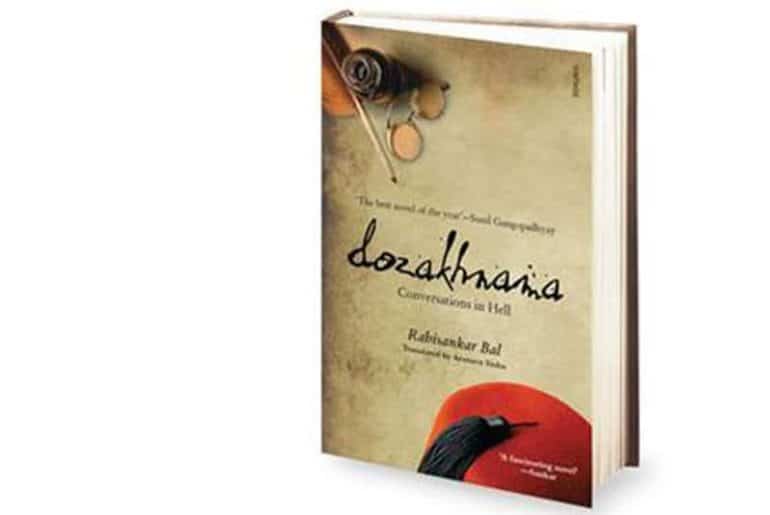Name of the author: Rabisankar Bal
Translator: Arunava Sinha
Genre: Magic realism
Year of release: 2013
Price: Rs 399
Who is the better storyteller: God or Manto?
Manto’s grave In Miani Sahib, Lahore, used to hold this epitaph before it was replaced by his sister fearing consequences from the newly independent Islamic nation of Pakistan. This race with God to be the better storyteller continued till his end and really is the essence of Dozakhnama. Within the conversation between two of the most celebrated writers in Urdu – Saadat Hasan Manto and Mirza Ghalib – the novel oscillates between two of the most important turning points in subcontinental history; the first war of independence in 1857 and the partition in 1947. In disguise of a literary masterpiece, it chronicles history in far more eloquent terms than any history book.
A journalist, unnamed throughout the book, researching on the tawaifs of Lucknow comes across an unpublished manuscript of a novel written by Manto about his conversation with Ghalib beyond the grave. He takes the manuscript back with him to Calcutta to translate it into Bengali with the help of his Urdu teacher, Tabassum. And then what follows is a world unleashed by the turning of pages where lost dastangos are found again, where Ismat Chugtai and Ashoke Kumar are living characters, where the last Mughal emperor, Bahadur Shah Zaffar is still holding onto glories long past. The decay of the Mughal Empire and with it the culture attached to it of Shahjahanabad is echoed in Manto’s description of the aftermath of partition. If history repeats itself, then there are no better historians than poets.
Translators are important. Without them, Marquez would still be undiscovered, Murakami would still be an unknown name and Neruda would not have become the most quoted poet ever. Likewise, without Sinha’s translation, Dozakhnama would have remained a book only celebrated inside the Bengali reading audience. While a lot of the nuances of the original language get lost in translation generally, Sinha has still managed to keep the pacing of the words and the emitting imageries true. Interestingly, the journalist-protagonist in the novel is himself translating a work from one language to another. One paradox inside another, by the end, the novel magically opens up portals to our shared history which reminds one that the past is not always that different from the present.


